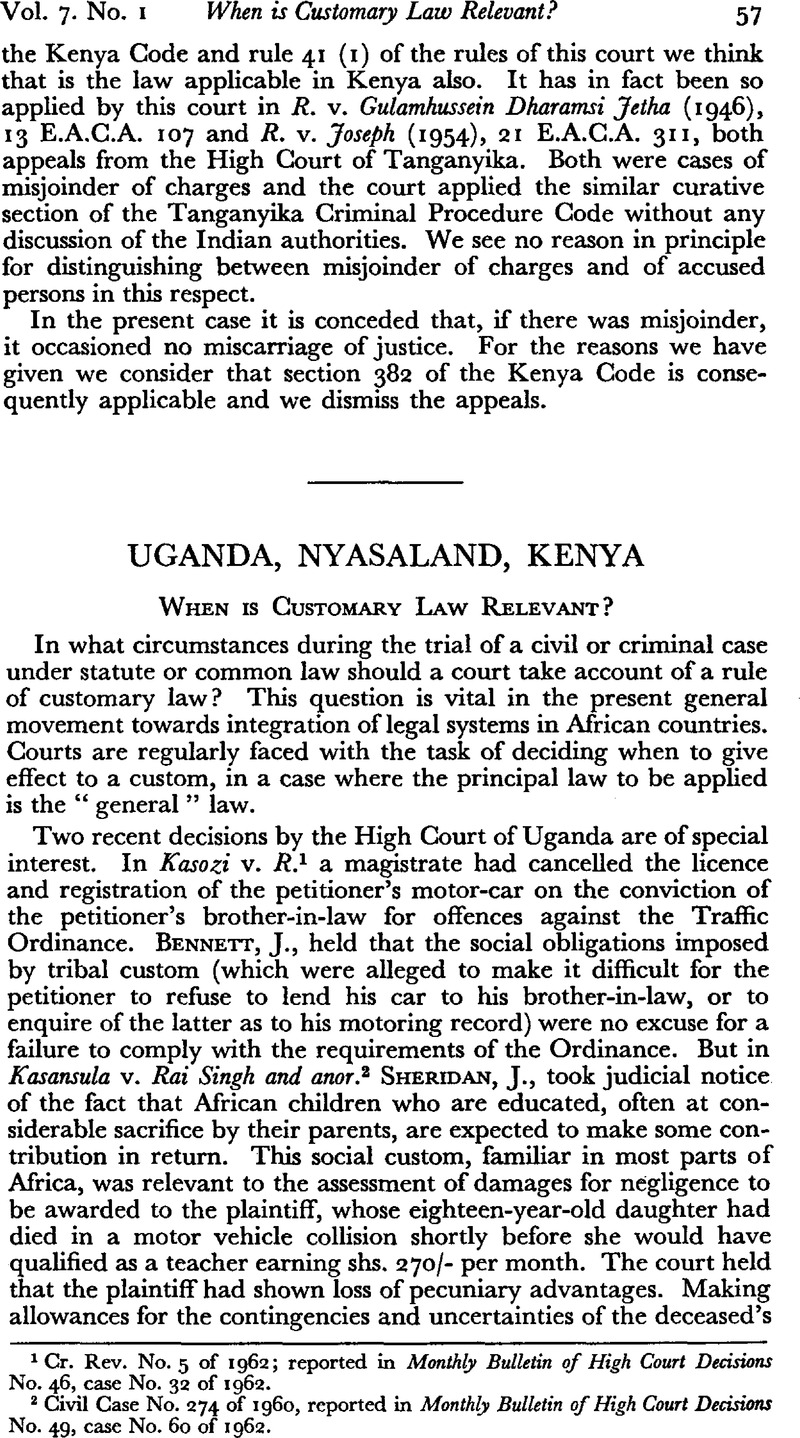Article contents
When is customary law relevant?
Published online by Cambridge University Press: 28 July 2009
Abstract

- Type
- Cases
- Information
- Copyright
- Copyright © School of Oriental and African Studies 1963
References
1 Cr. Rev. No. 5 of 1962; reported in Monthly Bulletin of High Court Decisions No. 46, case No. 32 of 1962.
2 Civil Case No. 274 of 1960, reported in Monthly Bulletin of High Court Decisions No. 49, case No. 60 of 1962.
page 58 note 1 1961, R. & N. 673.
page 58 note 2 (1937). 6 U.L.R. 17. See also R. v. Mahota s/o Nugundo (1948), 1 T.L.R.(R.) 94; R. v. Turner (1951), 5 N.R.L.R. 584.
page 58 note 3 I.e., he should have taken evidence on the point.
page 58 note 4 1956 R. & N. 240.
page 58 note 5 1961 R. & N. 538.
page 59 note 1 Nyasaland Penal Code, s. 3.
page 59 note 2 As explained, for example, in Kotia v. Nahas, [1941] A.C. 403, 413.
page 59 note 3 [1957] A.C. 126; 23 E.A.C.A. 609.
page 59 note 4 (1956), 23 E.A.C.A. 622.
page 59 note 5 [1952] 2 Q.B. 826.
- 2
- Cited by


